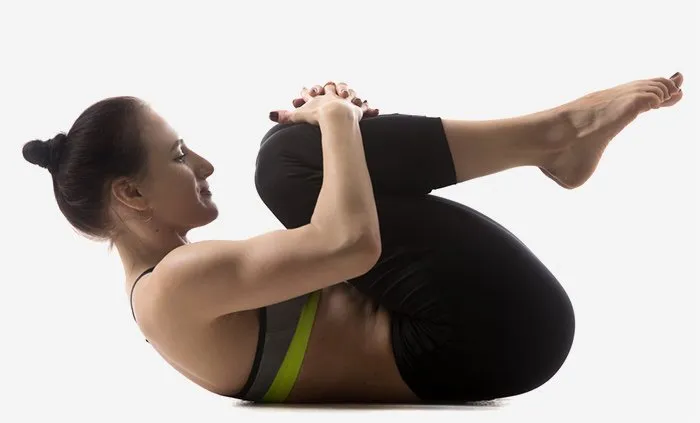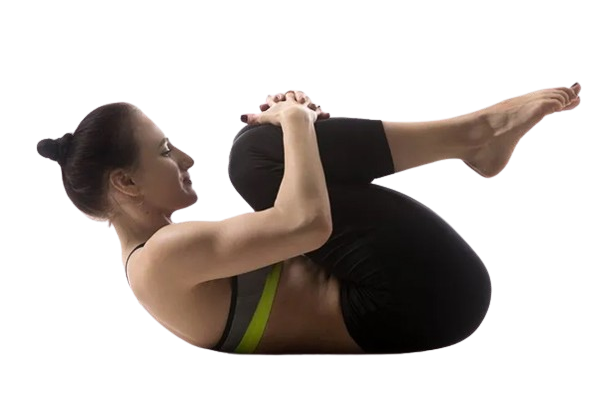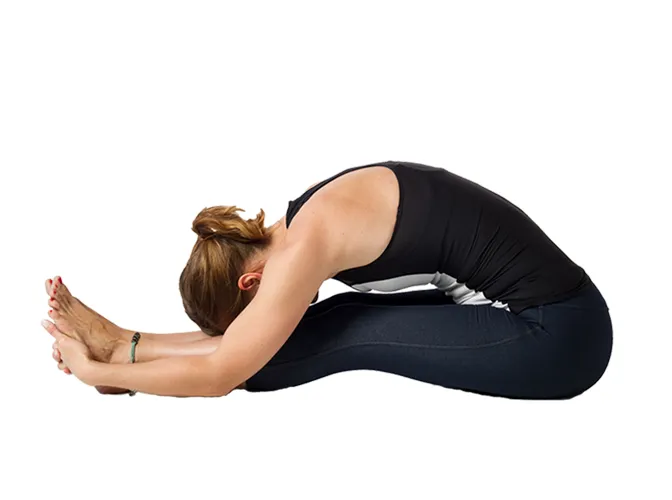On This Page
Pawan Mukta Asana – Introduction, Procedure and Benefits
Introduction
It is a wind relieving or wind removing pose. Pawan Mukta Asana is a supine pose. The Sanskrit word Pavan means ‘wind’ and the word Mukta means “release’ or “free’. Hence this is a wind releasing pose because it is very useful in removing wind or flatulence from the intestines and stomach. It is especially useful for beginners because though simple, it gives many benefits. Even the unhealthiest person can do this Asana.
Procedure of Pawan Mukta Asana
- Firstly, lie on the smooth surface of your back. Ensure that your arms are placed beside your body and your feet are together.
- Take a deep breath and as you exhale bring your knees towards your chest in such a way that your thighs are pressed on your abdomen.
- Clasp your hand around your leg in such a way that you are hugging your knees.
- Every time you exhale, increase the pressure on your chest by tightening the grip of your hands on the upper shins.
- During inhalation loosen the grip
- Release the pose after exhaling and side-to-side rock and roll three to six times.

Have A Health Issue?
Consult Online
- Dr. Sahil Gupta (B.A.M.S., M.H.A.)
Ayurvedic Allergy Specialist
CEO & Founder of IAFA®
Benefits of Pawan Mukta Asana
- This Asana gives an excellent massage to the abdomen. In this pose the abdominal muscles are tensed and simultaneously the internal organs are compressed by the folded legs.
- This increases the circulation of the blood and stimulates the nerves which connect the organs to the brain or nerve complexes. As such it helps in no small way to relieve various types of abdominal ailments associated with malfunctioning of inefficient organs.
- This Asana is particularly useful for removing constipation and flatulence. Food moves from the stomach through the intestines during digestion.
- This Asana also tones up the back muscles and spinal nerves.







